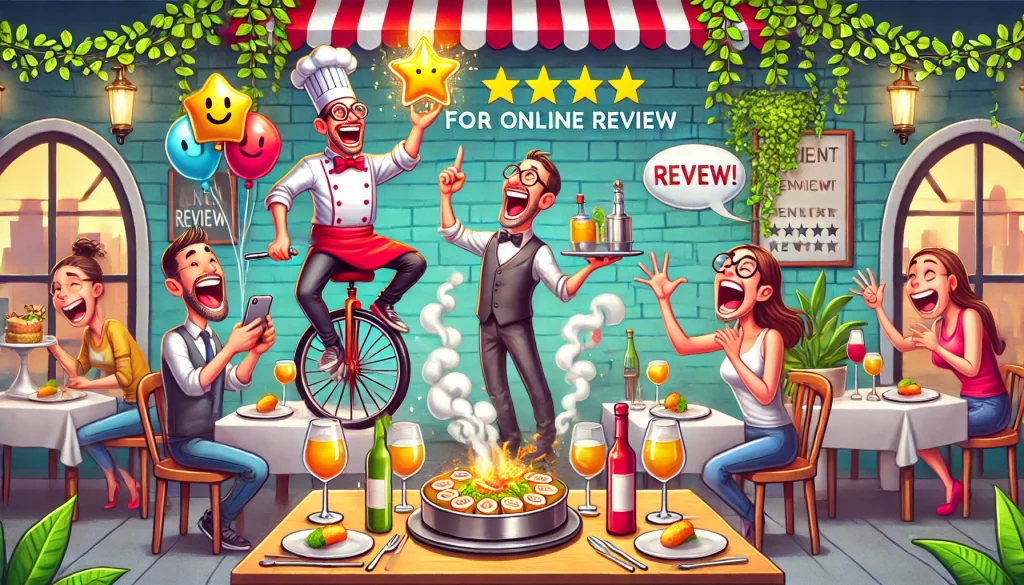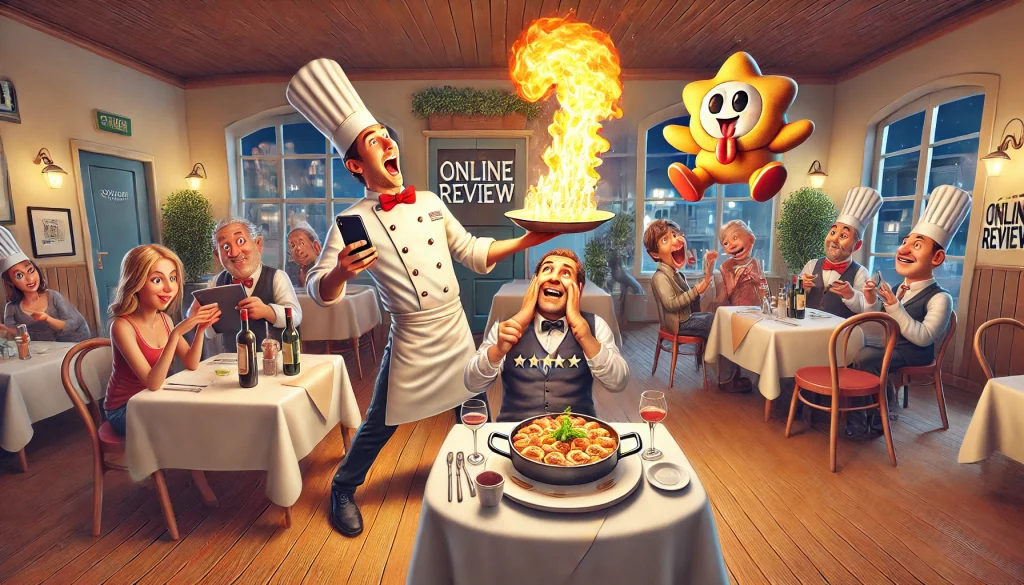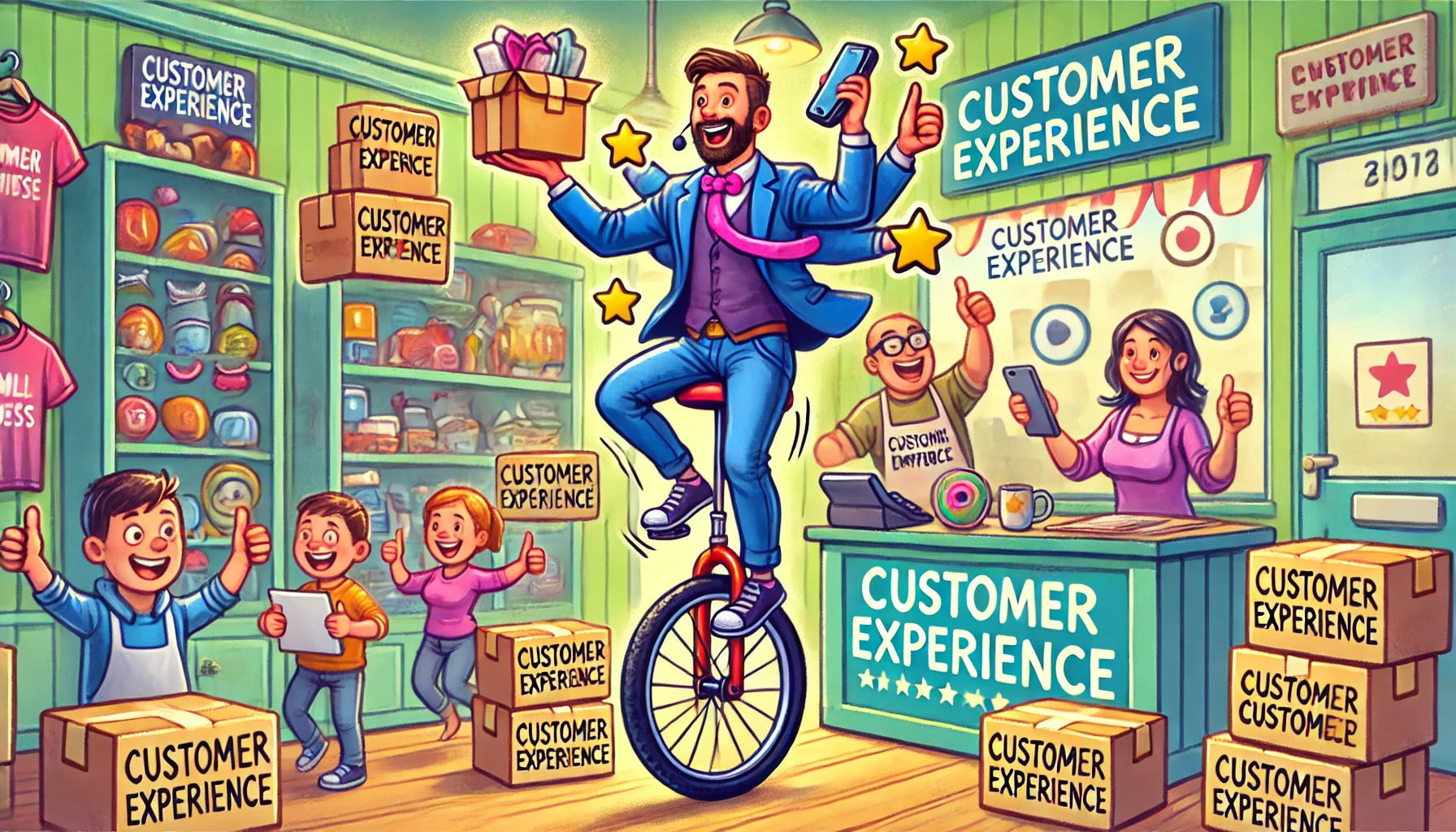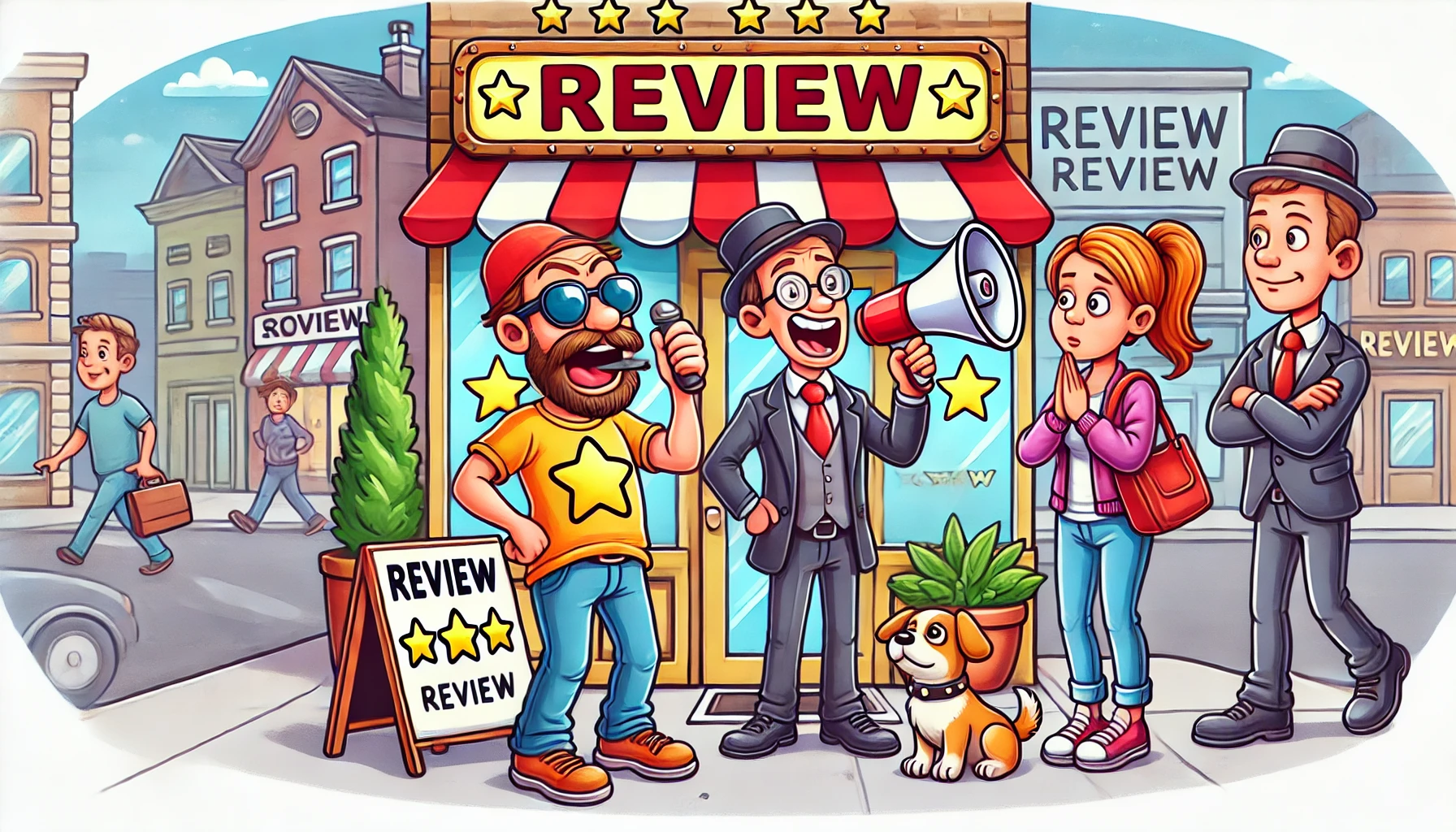Getting more online reviews for restaurants: Boost customer engagement and trust
Content:
Creating a review-friendly environment
Leveraging technology
Building a review strategy
Numbers and facts
Expert opinions on the impact of online reviews for restaurants

Online reviews have become a cornerstone for restaurants, influencing customer decisions and shaping business reputations. In today’s digital age, having a robust collection of positive reviews is not just beneficial—it’s essential.
Small business owners can significantly boost their online presence and attract more customers by strategically increasing the number of positive online reviews.
This article will cover methods to encourage more reviews, practical tips for improving customer experience, leveraging social media, and engaging with reviewers.
Creating a review-friendly environment
Enhancing customer experience
A great dining experience naturally leads to more positive reviews.
Consistency in quality: Ensure consistent food quality and service. Customers are more likely to leave positive reviews if they know they can expect the same great experience every time they visit.
Ambiance and cleanliness: Maintain a welcoming and clean environment. A pleasant atmosphere and cleanliness can significantly impact a customer’s overall experience.
Personal touches: Train staff to provide personalized service. Remembering a customer’s name or favorite dish can make them feel valued and more inclined to leave a positive review.
Statistics show that 60% of consumers read restaurant reviews, highlighting the importance of a positive experience.
Encouraging reviews on-site
Immediate prompts can significantly increase the likelihood of reviews.
Tabletop prompts: Use table tents or receipts with a review request. These small reminders can nudge satisfied customers to share their experiences online.
Staff training: Train staff to gently remind satisfied customers to leave reviews. A simple, polite request from a friendly server can go a long way.
Digital kiosks: Implement tablets or kiosks where customers can leave reviews before they leave. This convenience can encourage more immediate feedback.
It’s important to avoid review filters by using post-visit follow-ups rather than immediate prompts to ensure authenticity.

Leveraging technology
Using online platforms effectively
Optimize online presence to make it easy for customers to leave reviews.
Claim business listings: Ensure your restaurant is listed and claimed on major review sites like Google, Yelp, and TripAdvisor. This visibility makes it easier for customers to find and review your business.
Simplify the process: Provide direct links to review sites on your website and social media. Making the review process as straightforward as possible can increase participation.
Automated emails: Send follow-up emails after dining experiences with a review request. Timely follow-ups can capture the fresh impressions of your customers.
Timing of email and text message follow-ups is crucial to avoid reviews being filtered.
Social media engagement
Actively engaging on social media can boost review volume.
Encourage user-generated content: Run campaigns encouraging customers to share their experiences online. This can include photo contests or hashtags.
Respond to reviews: Actively respond to reviews to show that you value customer feedback. Engaging with both positive and negative reviews demonstrates that you care about your customers’ opinions.
Incentives for sharing: Offer incentives for customers who share their experiences on social media platforms. Discounts or special offers can motivate customers to leave reviews.
Incorporate the art of writing reviews and social sharing benefits to enhance your strategy.
Building a review strategy
Incentivizing reviews
Thoughtful incentives can motivate customers to leave reviews.
Loyalty programs: Reward loyal customers who leave reviews with discounts or freebies. This not only encourages reviews but also promotes repeat business.
Contests and giveaways: Hold monthly contests where reviewers can win a meal or other prizes. This adds an element of fun and excitement.
Referral programs: Offer benefits to customers who refer others and leave positive reviews. This can create a cycle of positive feedback and new customer acquisition.
Introduce the concept of Kiosk Mode for collecting customer contact info, ensuring follow-ups are sent after they leave.
Handling negative reviews
Constructive management of negative feedback can improve overall perception.
Timely responses: Respond quickly and professionally to negative reviews. This shows that you care about customer satisfaction and are willing to make things right.
Address concerns: Show a genuine effort to resolve issues mentioned in the reviews. Taking responsibility and offering solutions can turn a negative experience into a positive one.
Learn and improve: Use feedback to make tangible improvements in service and food quality. Continuous improvement based on customer feedback can lead to better reviews in the future.

Numbers and facts
88% of consumers trust online reviews as much as personal recommendations.
92% of diners read restaurant reviews before choosing where to eat.
Restaurants with an average rating of 4.5 stars or higher receive more engagement.
33% of consumers would not eat at a restaurant with less than 4 stars.
48% of diners will leave a review if asked by the restaurant staff.
Offering an incentive can increase review rates by 5-10%.
77% of diners who read online reviews share their own review afterward.
Reviews mentioning “good service” increase the likelihood of diners visiting the restaurant by 17%.
Restaurants that respond to 50% of their reviews see a 5% increase in ratings.
30% of diners have left a negative review online after a bad experience.
20% of restaurant-goers use social media to decide on a restaurant, where reviews and ratings play a crucial role.
A 1-star increase in Yelp rating can lead to a 5-9% increase in revenue.
Restaurants that post photos and respond to reviews frequently see a 19% increase in customer interaction.

Expert opinions on the impact of online reviews for restaurants
Emma Roberts, Marketing Specialist at Foodie Ventures “In today’s digital age, online reviews are the lifeblood of the restaurant industry. Restaurants should actively encourage satisfied customers to leave reviews by providing them with a seamless and convenient way to do so. This could include QR codes on receipts or table tents that direct customers to review sites. Moreover, offering a small incentive, such as a discount on their next visit or a free appetizer, can significantly increase the likelihood of receiving reviews. Consistently engaging with customers and responding to their feedback, whether positive or negative, demonstrates that you value their opinions and are committed to providing excellent service.”
Carlos Mendez, Senior Food Critic at Gourmet Insider “Authenticity is key when it comes to gathering online reviews. Diners can easily spot forced or fake reviews, which can harm a restaurant’s reputation. Restaurants should focus on delivering exceptional experiences that naturally prompt guests to share their thoughts. Highlighting user-generated content on social media and the restaurant’s website not only showcases genuine feedback but also encourages other diners to contribute their reviews. Engaging with customers in a personable and genuine manner will lead to more organic and positive reviews.”
Jessica Lin, Digital Marketing Consultant at Restaurant Revolution “Utilizing technology to streamline the review process is essential. Implementing an automated follow-up system that sends a polite request for feedback via email or SMS shortly after a customer’s visit can greatly increase the number of reviews. This approach ensures that the experience is still fresh in their minds, leading to more detailed and accurate reviews. Additionally, integrating review requests into loyalty programs can be highly effective. Loyal customers are more likely to leave positive reviews, and their continued patronage further solidifies the restaurant’s reputation.”

 7 min
7 min 







